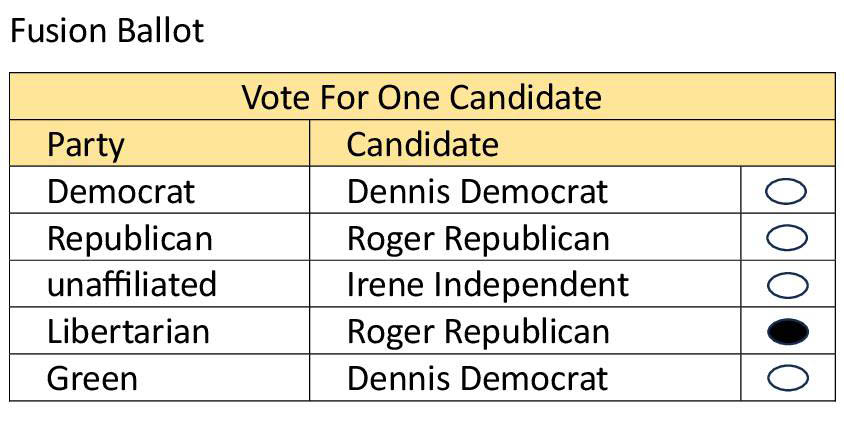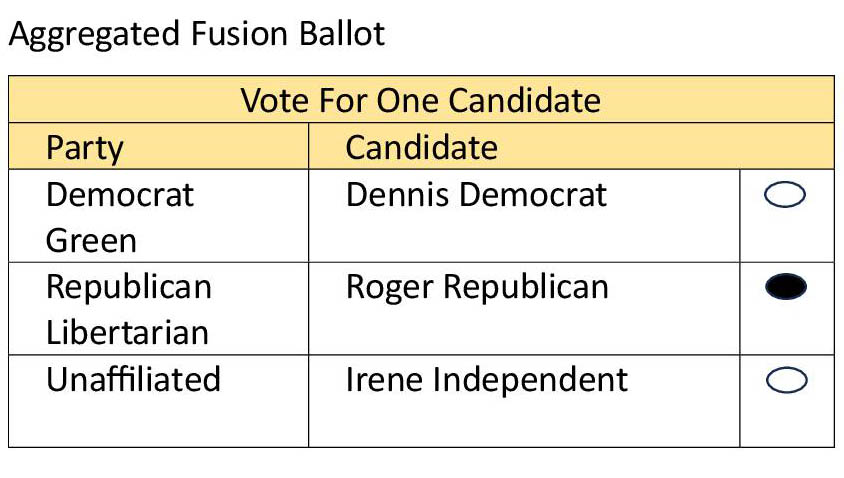Fusion Voting
A simple, proven system that gets to the heart of the matter.
The chief problem with our political system is the Democrat/Republican duopoly of power.
Fusion Voting allows us to express support for a third-party without harming the major party candidate we prefer.
Fusion Voting will help third parties gain influence in single winner elections. However, we will need proportional representation to end the Democrat/Republican duopoly of power.
Fusion Voting, also known as Full Fusion Voting, was popular in the 19th and early 20th centuries and several states still allow it. It enabled third-parties to become more influential, which is why most states got rid of it.
Full Fusion Election
In a Fusion election, a third party could avoid spoiling the chances of the major party they prefer by nominating that party’s candidate. The third party may also receive future considerations from the major party. Voters could express support for the third party and the major party.
For example, the Republican party nominates Roger Republican for Governor; Roger would appear on the ballot as a Republican. If the Libertarian Party also nominates Robert Republican, he would appear twice on the ballot; as the Republican nominee and the Libertarian Party nominee. If Roger receives strong support from the Libertarian Party, he will more than likely pay attention to their concerns as he governs.

Aggregated Fusion
Aggregated Fusion would allow two or more parties to appear on one ballot line. Full Fusion will not work well with many advanced voting methods. Aggregated Fusion will work with any method. The downside, major parties might not want to share a ballot line. It would be difficult to determine how much support a third party brought to the ticket using Aggregated Fusion.

Current Law
As of June 2023, Mississippi, New York, and Connecticut allow Fusion Voting. Oregon and Vermont allow Aggregated Fusion Voting.
Minnesota, South Carolina, Delaware, and New Jersey have banned Fusion Voting. Other states do not have Fusion Voting laws, Fusion Voting cannot be used in those states.[1]
Give Third-Parties a Voice
Fusion Voting enables voters to express support for two parties. Fusion Voting is a tried and proven system that is easy to implement. It would also be easy for voters to use and election officials to count. Voting machines would not need significant modifications.
Fusion Voting can work if third parties buy into the concept. Permission from the major party should be required. Republicans may welcome Libertarian help, but they should be able to reject support from the Decadence & Depravity Party.
Will third-parties embrace Fusion Voting or favor other voting systems that let voters express support for multiple parties? We will ask them.
[1] Ballotpedia – Fusion voting
Advocacy Tools Here


